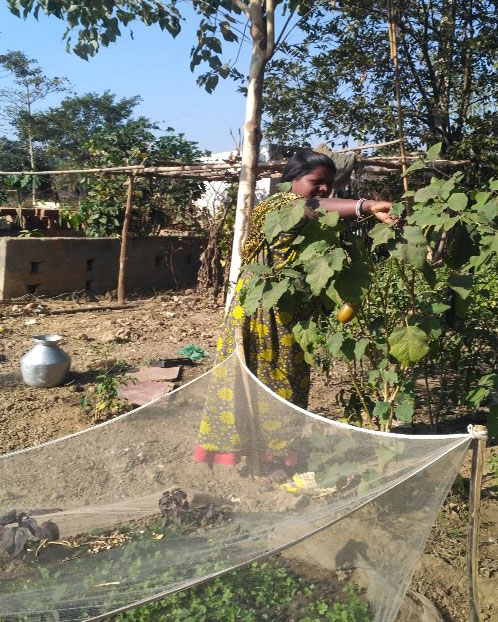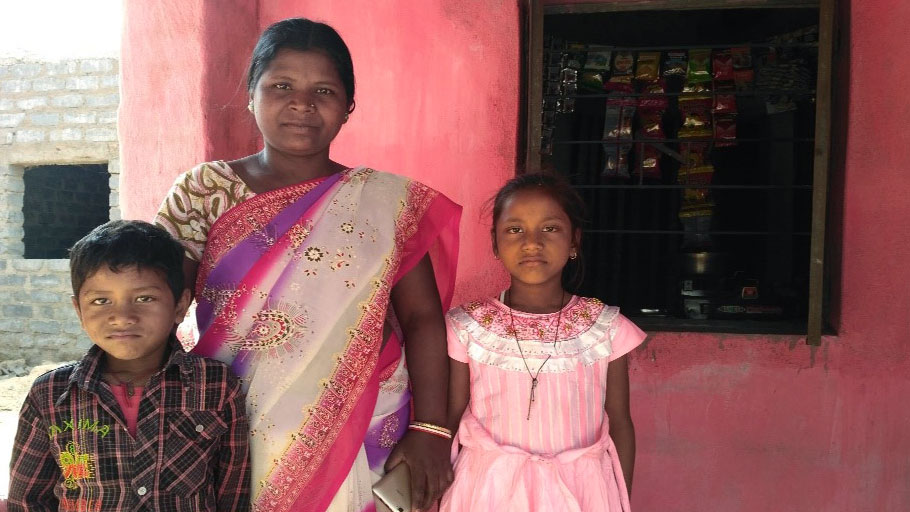A confident Nayuri Rohidas, smartphone in hand, visits her fields regularly where she is cultivating tomato, long beans, and eggplant. She uses Trickle Up’s new Package of Practices (PoP) app to improve her cultivation practices, diligently following the instructions on when to fertilize, sow, water, weed, and harvest her crops.
“I love to use the PoP app on my smartphone. It has been helpful in cultivating tomato and long beans. I no longer use chemical fertilizers,” says Nayuri.
“I love to use the PoP app on my smartphone. It has been helpful in cultivating tomato and long beans.”
Nayuri Rohidas
Nayuri is one of the first 250 project participants who have received smartphones through Trickle Up’s M-Powered project in partnership with Next3B. Nayuri’s PoP app was developed in her native language, Oriya, to help her grow vegetables such as tomato, okra, chilies, long beans, and bitter gourd. She’s hopeful that this cultivation season, from October to March, she will get a good yield and earn more income.
Nayuri is an active member of Maa Santoshi Self-Help Group (SHG) where she has learned about the importance of saving, building diversified livelihoods like growing vegetables and raising livestock, and ensuring her children’s education.
With a seed grant of $47 (Rs. 3000) from Trickle Up, Nayuri started cultivating rice paddy and vegetables on leased land. She invested the rest of the seed capital, plus income from her crops, to start raising chickens – now she has 25. A couple of months ago, she invested $70 (Rs. 4,500) to open a grocery shop as well.
Through the project Nayuri also built connections to government services; for example, she received $1,175 (Rs. 75,000) from government’s Indira Awaas Yojana program to build a house.

Before Trickle Up, Nayuri had to migrate to Delhi to find work. She recalls, “Living in Delhi has taken a toll on my health. With my meager income, I could not take care of my health. When we returned to the village, we had nothing to survive on.”
Today, her stable income from three successful businesses is enough to cover her family’s expenses, and she decided not to go to Delhi for work anymore. She earns around $63-$78 (Rs. 4,000-5,000) a month from her grocery shop, agriculture cultivation, and livestock. She says she feels content living with her two children and her husband in her community in Sundergarh, Odisha.
With a shy smile, she says, “Now I send both of my children to an English Medium School.”



